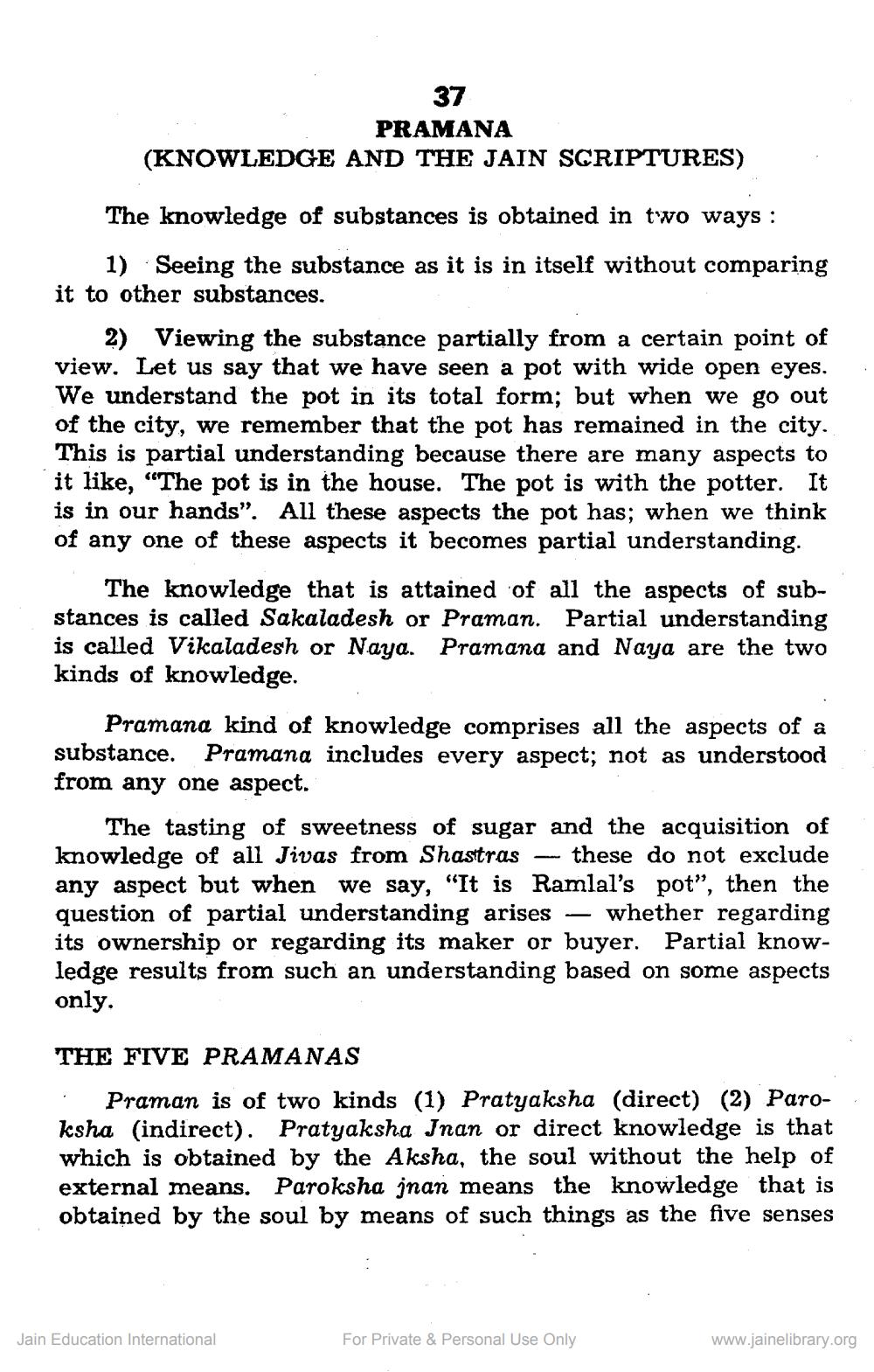________________
37
PRAMANA (KNOWLEDGE AND THE JAIN SCRIPTURES)
The knowledge of substances is obtained in two ways :
1) Seeing the substance as it is in itself without comparing it to other substances.
2) Viewing the substance partially from a certain point of view. Let us say that we have seen a pot with wide open eyes. We understand the pot in its total form; but when we go out of the city, we remember that the pot has remained in the city. This is partial understanding because there are many aspects to it like, "The pot is in the house. The pot is with the potter. It is in our hands". All these aspects the pot has; when we think of any one of these aspects it becomes partial understanding.
.
The knowledge that is attained of all the aspects of substances is called Sakaladesh or Praman. Partial understanding is called Vikaladesh or Naya. Pramana and Naya are the two kinds of knowledge.
Pramana kind of knowledge comprises all the aspects of a substance. Pramana includes every aspect; not as understood from any one aspect.
The tasting of sweetness of sugar and the acquisition of knowledge of all Jivas from Shastras — these do not exclude any aspect but when we say, "It is Ramlal's pot”, then the question of partial understanding arises – whether regarding its ownership or regarding its maker or buyer. Partial knowledge results from such an understanding based on some aspects only.
THE FIVE PRAMANAS
Praman is of two kinds (1) Pratyaksha (direct) (2) Paroksha (indirect). Pratyaksha Jnan or direct knowledge is that which is obtained by the Aksha, the soul without the help of external means. Paroksha jnan means the knowledge that is obtained by the soul by means of such things as the five senses
Jain Education International
For Private & Personal Use Only
www.jainelibrary.org




